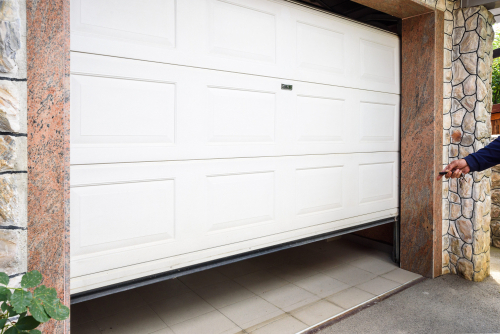When a garage door opener’s tracks develop even a small area of rust, the entire opener system can grind to a halt. Understanding the causes of rust and corrosion can help you to keep your garage door in good working order for as long as possible.
Three Causes of Rust on Garage Door Opener Tracks
If you have noticed your garage door shaking or making a lot of noise as it moves along the track, rust could be the cause. When rust develops on a garage door opener’s hardware, the door’s wheels have difficulty gliding over the affected area. An Irvine garage door repair service can remove the rust or replace the damaged area with rust-free materials.
High Humidity
Places with high humidity levels have an increased risk of rust development on exposed metal. The risk of rust is even greater if you use any chemicals in your garage. For example, if you use solvents or cleaners, aerosolized droplets can get onto the tracks. The dampness and chemicals can cause oxidation of the metal, resulting in corrosion and rust.
Insufficient Lubricant
When the wheels of the garage door are metal and the garage door’s tracks are also metal, the system needs to have enough lubricant for the parts to move smoothly. A loss of lubricant results in metal scraping across metal. The scrapes and scratches expose the metal and can cause rust to develop. Lubricant levels can decrease because of insufficient maintenance, extreme temperatures or heavy use of the garage door.
Sprinklers and Steam
Many people use sprinklers to keep their lawns growing and looking good. Some of these irrigation systems spray water to a considerable height and distance. If the units are close to your garage, some of that spraying water could be hitting the tracks of your garage doors. If you use your gas grill near your garage, the steam of the cooking food could also affect the tracks of the opener and promote the development of rust. Letting off steam from your car’s radiator or doing other activities that involve heat and moisture releases also promote rust and corrosion on metal.











